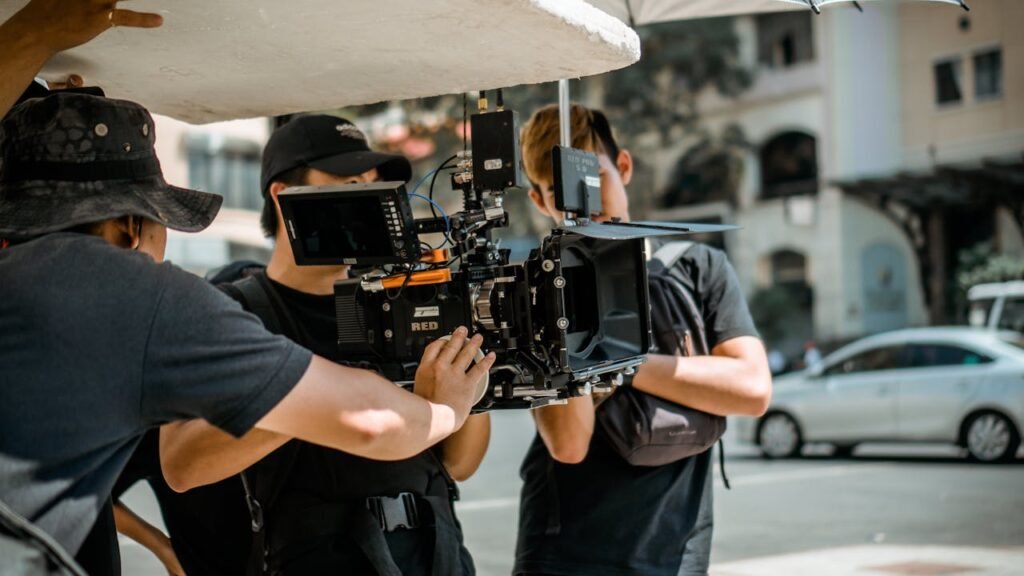Movies production is a multifaceted process that blends creativity, technology, and teamwork to bring captivating stories to the silver screen. Behind every blockbuster and indie gem lies a journey of vision, collaboration, and innovation.
History of Movie Production
Since the Lumière brothers first projected moving images in 1895, the art of filmmaking has evolved from silent films to today’s digital spectacles. Milestones like the advent of sound, color, and CGI have transformed cinema into a global cultural phenomenon.
Stages of Movies Production
From inception to distribution, movies production involves distinct stages: script development, pre-production (casting, location scouting), production (filming), post-production (editing, sound design), and distribution. Each phase demands meticulous planning and execution.
Key Roles in Movies Production
Central to every film are key figures: directors who shape narratives, producers who secure funding and oversee logistics, actors who embody characters, and crew members who bring technical expertise in cinematography, set design, and more.
Types of Films
Diverse genres—from thrilling action blockbusters to heartfelt dramas and spine-chilling horror—appeal to varied audience tastes. Each genre employs unique storytelling techniques and visual styles to evoke emotions and provoke thought.
Technology in Film Production
Technological advancements like digital cameras, CGI (Computer-Generated Imagery), and VR (Virtual Reality) have revolutionized filmmaking, enhancing visual effects, expanding creative possibilities, and reshaping audience experiences.
Challenges in Movies Production
Despite technological advancements, movies production faces challenges such as budget constraints, tight schedules, and creative conflicts. Effective management and innovation are crucial to overcoming these obstacles and delivering quality films.
Film Festivals and Awards
Prestigious events like the Cannes Film Festival, Sundance Film Festival, and Academy Awards celebrate cinematic excellence, showcasing groundbreaking films and recognizing talented filmmakers and performers.
Impact of Globalization on Film Industry
Global markets and collaborations have broadened the reach of films, influencing storytelling perspectives and diversifying cinematic themes. International partnerships foster cultural exchange and expand opportunities for filmmakers worldwide.
Future Trends in Movies Production
Looking forward, AI-driven filmmaking tools, streaming platforms, interactive cinema, and immersive experiences like AR (Augmented Reality) are poised to redefine how films are created, distributed, and consumed in the digital age.
Conclusion
Movies production continues to evolve as a dynamic blend of artistry, technology, and business acumen. As audiences crave new narratives and experiences, filmmakers innovate, ensuring that the magic of cinema thrives in an ever-changing world.

